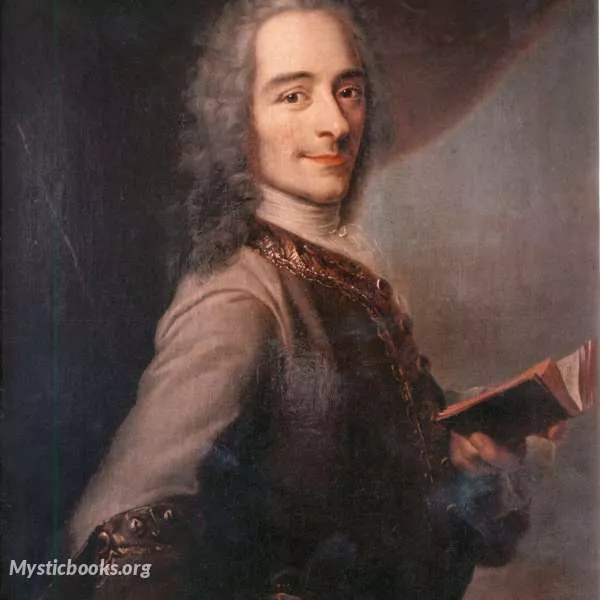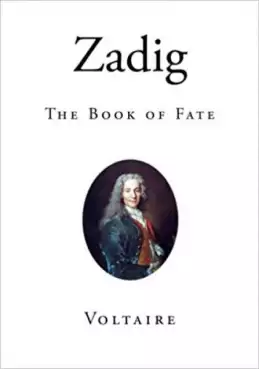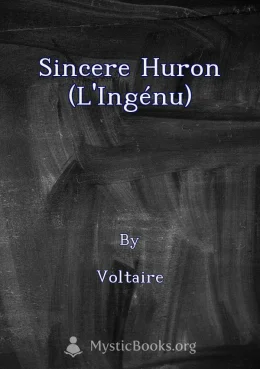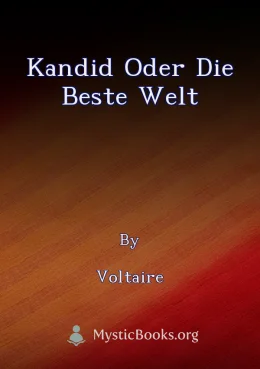
Timeline
Title
Country/Nationality
Voltaire
François-Marie Arouet , known by his nom de plume Voltaire, was a French Enlightenment writer, historian, and philosopher famous for his wit, his criticism of Christianity—especially the Roman Catholic Church—as well as his advocacy of freedom of speech, freedom of religion, and separation of church and state.
Voltaire was a versatile and prolific writer, producing works in almost every literary form, including plays, poems, novels, essays, histories, and scientific expositions. He wrote more than 20,000 letters and 2,000 books and pamphlets. He was one of the first authors to become renowned and commercially successful internationally. He was an outspoken advocate of civil liberties, and he was at constant risk from the strict censorship laws of the Catholic French monarchy. His polemics witheringly satirized intolerance, religious dogma, and the French institutions of his day.
François-Marie Arouet was born in Paris, the youngest of the five children of François Arouet (1649–1722), a lawyer who was a minor treasury official, and his wife, Marie Marguerite Daumard (c. 1660–1701), whose family was on the lowest rank of the French nobility. peculation surrounds Voltaire's date of birth, because he claimed he was born on 20 February 1694 as the illegitimate son of a nobleman, Guérin de Rochebrune or Roquebrune. Two of his older brothers—Armand-François and Robert—died in infancy, and his surviving brother Armand and sister Marguerite-Catherine were nine and seven years older, respectively. Nicknamed "Zozo" by his family, Voltaire was baptized on 22 November 1694, with François de Castagnère, abbé de Châteauneuf , and Marie Daumard, the wife of his mother's cousin, standing as godparents. He was educated by the Jesuits at the Collège Louis-le-Grand (1704–1711), where he was taught Latin, theology, and rhetoric; later in life he became fluent in Italian, Spanish, and English.
In February 1778, Voltaire returned for the first time in over 25 years to Paris, among other reasons to see the opening of his latest tragedy, Irene. The five-day journey was too much for the 83-year-old, and he believed he was about to die on 28 February, writing "I die adoring God, loving my friends, not hating my enemies, and detesting superstition." However, he recovered, and in March he saw a performance of Irene, where he was treated by the audience as a returning hero.
He soon became ill again and died on 30 May 1778. The accounts of his deathbed have been numerous and varying, and it has not been possible to establish the details of what precisely occurred. His enemies related that he repented and accepted the last rites from a Catholic priest, or that he died in agony of body and soul, while his adherents told of his defiance to his last breath. According to one story of his last words, when the priest urged him to renounce Satan, he replied, "This is no time to make new enemies." However, this appears to have originated from a joke in a Massachusetts newspaper in 1856, and was only attributed to Voltaire in the 1970s.
Because of his well-known criticism of the Church, which he had refused to retract before his death, Voltaire was denied a Christian burial in Paris, but friends and relations managed to bury his body secretly at the Abbey of Scellières in Champagne, where Marie Louise's brother was abbé. His heart and brain were embalmed separately.
Books by Voltaire

Candide
A picaresque novel written by French satirical polemicist and philosopher Voltaire, Candide blatantly attacks the ideology of philosopher Leibniz. Candide follows the series of unfortunate events encountered by the young, yet blindly optimistic Candi...

Zadig, or the Book of Fate
Zadig; or, The Book of Fate is a novella and work of philosophical fiction by the Enlightenment writer Voltaire. It tells the story of Zadig, a philosopher in ancient Babylonia. The author does not attempt any historical accuracy, and some of the pro...

The Sincere Huron
L'Ingénu sometimes subtitled The Sincere Huron in English, is a satirical novella by the French philosopher Voltaire, published in 1767.

Candide ou L'optimisme
Candide vivait paisible et innocent chez le baron de Thunder-ten-tronckh, en Westphalie. Dans son château, le précepteur Pangloss (« qui discourt de tout » en grec), représentation de Gottfried Leibniz, professait un optimisme béat. Candide partageai...

Sincere Huron (L'Ingénu)
L'Ingénu, or Sincere Huron, is a satirical novella by Voltaire that explores the clash between innocence and societal corruption. It follows the journey of a Huron Indian, transported to the complexities of 18th-century Paris, where he encounters the...

Kandid oder Die beste Welt
Candide, ou l'Optimisme is a satirical novel by Voltaire, first published in 1759. The novel follows the adventures of Candide, a young man who is taught by his tutor, Pangloss, that the world is the best of all possible worlds. However, Candide's op...

Zadig ou la destinée
Zadig ou la destinée is a philosophical novel by Voltaire published in 1747. It tells the story of a young man named Zadig who, despite his intelligence and good intentions, faces a series of misfortunes. Zadig is a wealthy and virtuous young man who...

Letters on England
Voltaire's *Letters on England* is a collection of essays written during his exile in England. It offers a sharp comparison between English and French society, highlighting the intellectual and social freedoms that flourished in England during the En...